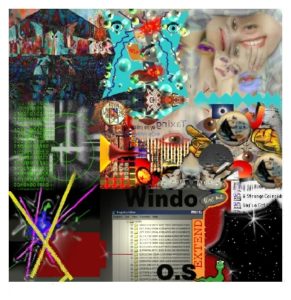In his Digital Storytelling Cookbook, Joe Lambert talks about today’s “story fragments:”
…we are bombarded with millions of indigestible, literally unmemorable, story fragments every time we pick up a phone, bump into a friend, watch TV, listen to the radio, read a book or a newspaper, or browse the Web. We cannot process these into epigrams, recite and retain them, and so they become a jumble of fragments that actually inhibit our ability to construct a coherent story.
That passage was cited by Matthew Stringer. In his Nerd Acumen blog,  Stringer agrees that “this saturation [of fragments] has stunted our storytelling capabilities.”
Stringer agrees that “this saturation [of fragments] has stunted our storytelling capabilities.”
Kelli Lawless also worries, though in a very different context. Lawless blogs about dating and mating in America and notes that she recently asked her network:
Has anyone else noticed a change in the nature of storytelling (and communication) since our culture has adopted texting, IM and short media?
Lawless reported that her respondents cited “Sesame Street attention-span shrinkage” and “our inability to just sit and ‘Be’ — un-distracted by all the stimuli surrounding us,” among other comments she received.
She ends her blog entry by asking: “Are you a frustrated and mute storyteller, or do you just collect drinking friends and wait till the liquor is flowing before launching into your tale?”
I come down on the optimistic side of this conversation. Yes, the information overload is distracting. Yes, attention spans have shortened dramatically. But the same technological and cultural forces that have spawned this fragmentation have also given us new and unprecedented tools for telling, sharing, and enjoying stories.
Yes, storytelling in changing. The good news is that many more people are now telling their stories. A huge number of those stories may be tiny fragments (say, 140 characters long). But I do not believe humans will ever lose the ability to engage with a story of any length that is well-told. And the tiny fragments make the audience hunger for more. Witness what has happened since Facebook enabled commenting on peoples’ status updates. Commenters ask to learn more of the story. Sometimes the teller obliges in satisfying fashion; sometimes not. But how many of these people would have been storytellers at all if not for tools like Facebook and Twitter?
